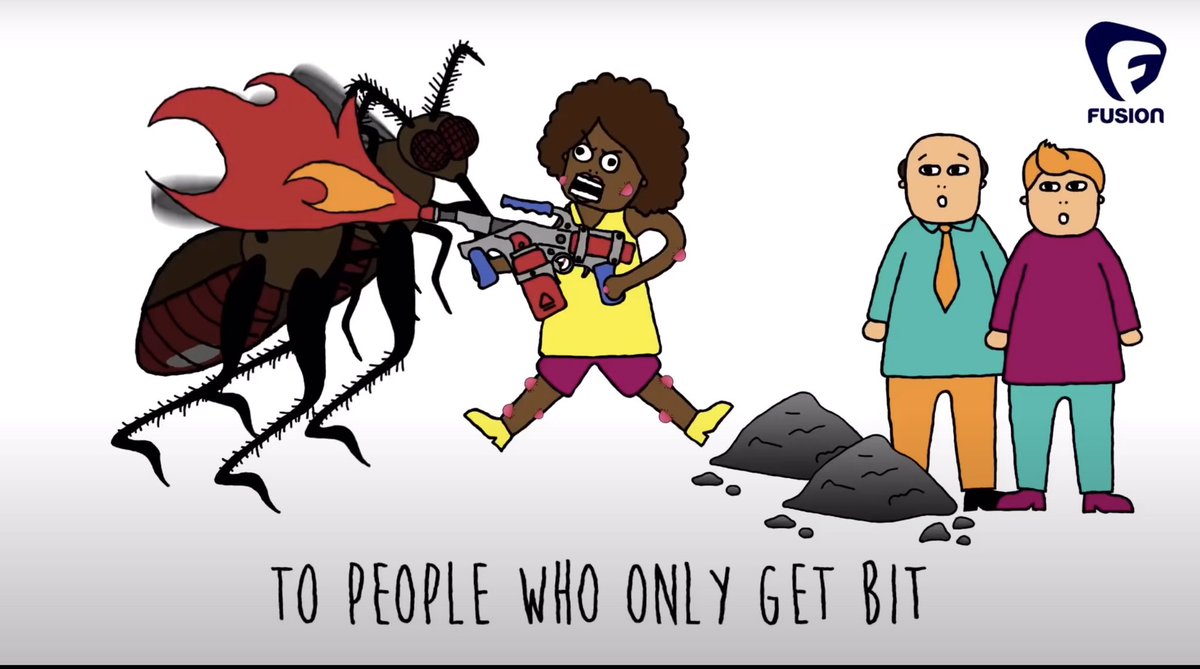
SCOOP: President Joe Biden’s nominee to fill a vacancy on the Second Circuit Court of Appeals is a longtime diversity trainer who has argued for curtailing the First Amendment and conducted training sessions that say "microaggressions" can "kill you." 🧵
freebeacon.com/biden-administ…
freebeacon.com/biden-administ…
Now an associate justice on the Connecticut State Supreme Court, Maria Araujo Kahn suggested in a 2020 opinion that courts should criminalize speech that offends "oppressed groups."
Since 2013, she has also delivered at least a dozen diversity trainings and presentations to lawyers across the country, with titles like "Cultural Competence, Implicit Association and Racial Anxiety," according to her Senate Judiciary Questionnaire.
To prepare for one of those trainings, participants were instructed to watch an animated video, "How Microaggressions Are Like Mosquito Bites," that depicts a man-sized mosquito telling a dark-hued college student to "try a less challenging major" and then sucking him dry. 



"Some mosquitoes carry truly threatening diseases that can mess up your life for years," a voice-over says. "And other mosquitos carry strains that can even kill you."
The video then cuts to a mosquito holding a gun next to a dead body. "I felt threatened," the insect tells officers at the scene of the crime. "It looked like he was up to trouble, ok?" 

Another clip depicts a black woman murdering several mosquitos with a flamethrower after they ask to touch her hair. 

The revelations could prove a last minute stumbling block for Kahn, who in September sailed through the Senate judiciary committee with little pushback. A final vote on her nomination could come as soon as next week.
As a Second Circuit judge, Kahn would have a say in some of the influential judicial cases in the county—and would bring to the court a controversial view of the First Amendment.
In a 2020 opinion, Kahn argued for broadening the "fighting words" exception to the First Amendment—which bans speech likely to spark violence—on the grounds that some groups are unlikely or unable to physically retaliate against insults.
casetext.com/case/state-v-l…
casetext.com/case/state-v-l…
That means they "must endure a higher level of offensive speech before being afforded legal remedies," she wrote.
Though Kahn is vague on how exactly she would reform First Amendment law, the opinion laments that bigots can "verbally assault certain oppressed groups"—especially women and the disabled—"without fear of criminal prosecution."
The Second Circuit’s docket is unusually high-profile, in part because of its jurisdiction over NY state, and often includes prominent free speech cases. In 2022, for example, the court upheld a New York state official’s right to discourage banks from doing business with the NRA.
In 2019, it ruled on 1A grounds that Donald Trump could not block critics from his personal Twitter account. If Kahn joins the Second Circuit, she could hear challenges to NY’s controversial social media law, which requires platforms to report "hateful conduct" to the state.
Kahn’s views on free speech reflect a broader trend in progressive jurisprudence, where once-taken-for-granted legal norms have fallen out of favor.
Last year, for example, the Washington State Supreme Court flipped the burden of proof for claims of racial bias in civil trials, forcing attorneys accused of stereotyping to show that their language did not activate any juror’s "implicit bias." freebeacon.com/courts/batsh-t…
Lawyers and law professors said that the negative would be impossible to prove and that the court had set a chilling precedent. David Bernstein, a professor of constitutional law at George Mason University, called the decision "batshit crazy."
Kahn isn’t the only radical Biden nom. Rebecca Slaughter, whom Biden this month renominated to the FTC, suggested the United States take a page from South Africa and integrate "racial equity" into antitrust law, going after businesses with "racially skewed" ownership.
"#Antitrust can and should be #antiracist," she declared in September 2020. Two weeks later, she told CNBC that "it isn’t possible to really be actually neutral, nor should we be neutral in the face of systemic racism and structural racism." thefp.com/p/the-takeover…
Biden has also nominated Nusrat Jahan Choudhury, the legal director of the ACLU’s Illinois chapter, to serve on a New York district court. In 2019, Choudhury told an audience at Princeton that police shoot unarmed black men every day. wham1180.iheart.com/featured/the-c…
• • •
Missing some Tweet in this thread? You can try to
force a refresh






